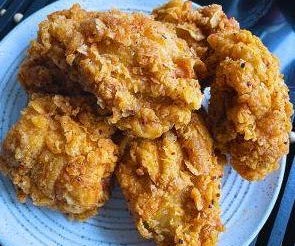Introduction: Organic Malt Whisky
One ingredient, still a myriad of tastes.
All single malt whiskys are made of barley malt. It is the artisan that accomplishs the individual flavour. The hundreds of stills each characterized by its distinct whisky.
Prearing your own organic malt whisky is simple, but takes time. Breaking the process down, there are five steps:
- Malting.
- Mashing.
- Fermentation.
- Distilation.
- Maturation.
Step 1: Malting
The malting process alters the barley grain.
The process starts with barley grains. The final product is malt.
The grain is soaked in water to start germination. Then the germination is stoped by drying the grain again. The alteration to the grain is that enzymes were produced during the germination. These enzymes are required in the mashing step.
I purchase malt at my local brewery shop. For the organic malt whisky, I am using Weyermann vienna malt (6-9 EBC).
Step 2: Mashing
Purpose of the mashing is to release sugars from the malt.
The process starts with water and malt. The final product is the sweet wort.
Ingredients
- 3 kg organic malt
- 4 liters cold water (10-30°C, potable water quality)
- 3 liters hot water (potable water quality)
Worksteps
- Mill the malt into coarse flour.
- In a large pot fill the cold water. Stirr in the malt flour.
- Put the pot on the oven.
While heating up the mash, the enzymes are activated. - Following temperature rests are taken while heating up:
- 40 min at 50-55 °C,
- 40 min at 60-65 °C, and
- 40 min at 72-78 °C.
- After that, the malt has released all its sugars.
- Strain grists and debris from the mash.
Pour the mash through a perforated pot, collecting the sweet wort. - Wash out remaining sugars by pouring hot water and stirring. Collecting the sweet wort.
- Finally, fitrate all sweet wort using a cheese cloth.
- Let cool down.
Step 3: Fermentation
The fermentation turns all sugars into alcohol. The sweet wort is fermented to beer.
- Transfer the sweet wort to a fermentation container.
- Ventilate the sweet wort.
- Add yeast and stirr in to start the fermentation.
- Close container with an air lock.
- Wait until fermentation stoped and all yeast settled.
- Siphon the beer, avoiding to stirr up the yeast.
- Store beer air tight and cool.
Usually the beer will have about 10 % ABV.
Remarks
Step 2: The sweet wort is free of oxygen. During the boiling all oxygen left the wort. However, to create favourable conditions for the yeast, I am adding oxygen by bubbeling the wort with an air pump.
Step 3: I was adding 20 g of dry organic yeast to 7 liters of wort. The fermentation took 9 days at 25 C temperature. To speed the process up, one might add more yeast.
Step 4: Distillation
During distillation the alcohol is separated. The beer is distilled to produce grain spirit.
- Dilute the beer with potable water, 3 parts beer 1 part water.
This is to reduce foaming during distillation. - Setup the microstill and connect to the beer.
- Run the microstill on low flow rate to prevent foaming.
- Collect grain spirit.
Remarks
Foaming is a common problem with the distillation of grain ferments. Foaming can cause that ferments pass over into the spirit. Giving the spirit some color. Using the microstill at low flow rate will reduce foaming.
Step 5: Maturation
During maturation grain spirit turns into whisky.
- Maturation by the addition of oxygen.
- Whisk grain spirit frothing for 3 minutes.
- Buy/prepare charred wood chips (oak).
- DANGER of FIRE HAZARD - there are several ways to produce charred wood chips. All of them pose a severe fire risk. That is why I can not post them.
- Add grain spirit to wood chips (150g per 1L spirit).
- Store in the dark for 4 weeks.
- Filtrate the whisky, e.g. using coffee filter.
- Enjoy your whisky. Cheers.
Remark
The above description, ofcourse, is only a shortcut. Regular whisky will age for years, giving it plenty of time to a) take up oxygen and b) take up wood flavours. In my opinion the above result offers a good compromise.











